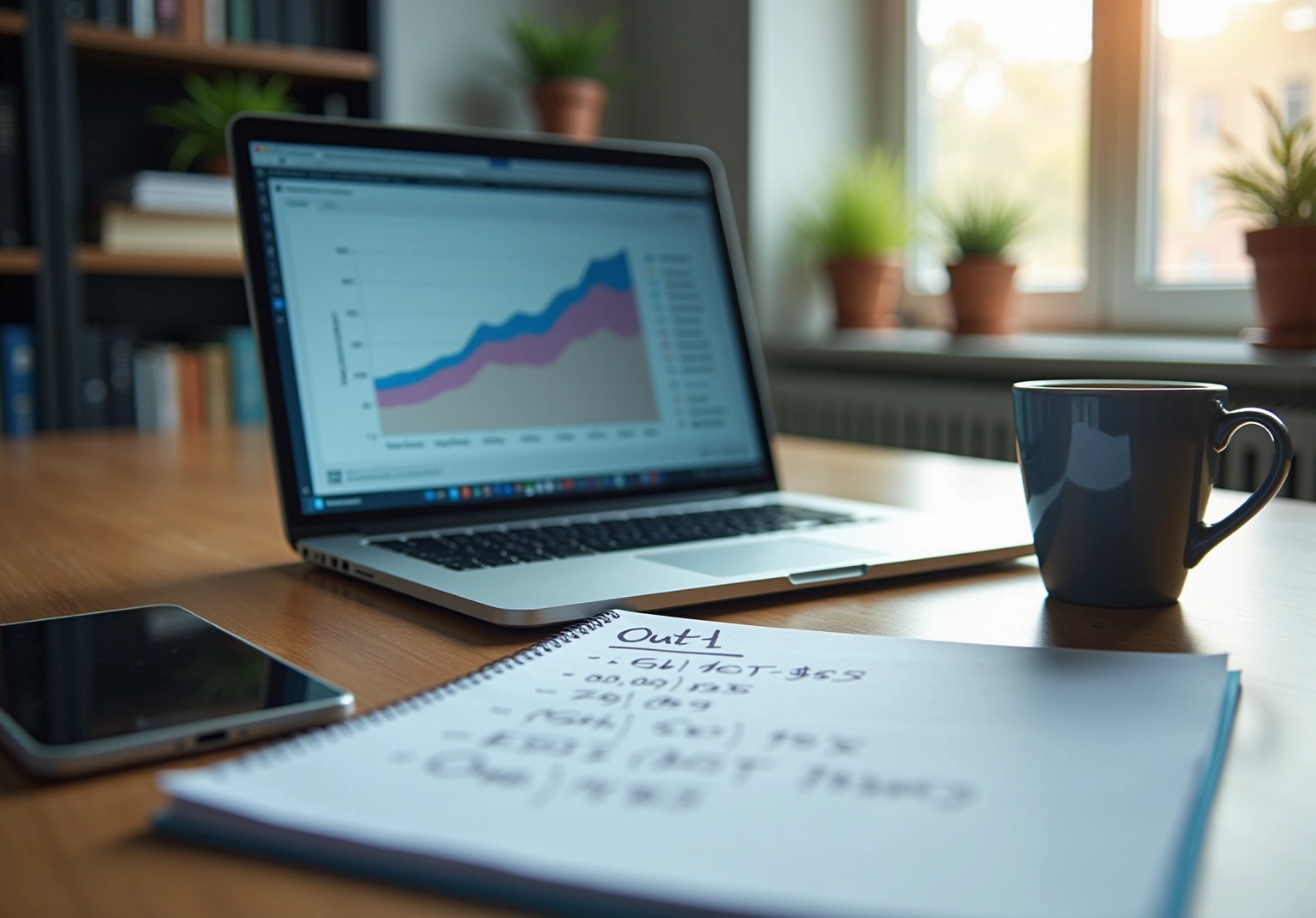How Early Should You Arrive for an Interview: Key Tips
Learn how early should you arrive for an interview to ensure confidence and punctuality.
Overview
Arriving for an interview should ideally be timed to 10 to 15 minutes early. This allows for mental preparation, ensuring comfort for both parties involved. Such a window strikes a balance between punctuality and consideration for the interviewer’s schedule.
Moreover, thorough preparation is paramount; it not only boosts confidence but also enhances performance during the interview. Embrace this practise as a proven strategy for success in your job search.
Introduction
Mastering the intricacies of the interview process is pivotal for a candidate’s success, yet many fail to recognise the critical role of timing. Arriving 10 to 15 minutes early not only facilitates mental preparation but also signals respect for the interviewer’s time. However, this delicate balance between punctuality and the risk of appearing overly eager prompts an essential inquiry:
- How can candidates accurately assess their arrival time to forge a favourable first impression while avoiding any sense of discomfort?
Understand the Interview Process
Before attending a meeting, it is essential to grasp the intricacies of the process itself. Interviews typically consist of multiple phases, including:
- Introductions
- Inquiries and responses
- A concluding segment
Familiarising yourself with the various types of discussions you may encounter—such as behavioural, situational, or technical formats—can significantly enhance your preparation. For example, if you are pursuing a technical role, expect questions that evaluate your problem-solving abilities and technical expertise.
Furthermore, delve into the organisation’s assessment approach by seeking insights from former applicants. This thorough preparation will not only bolster your confidence but also empower you to tailor your responses to align with the company’s culture and expectations.

Plan Your Arrival Time
When considering how early should you arrive for an interview, it is crucial to aim for a timeframe of 10 to 15 minutes early. This window allows you to check in, gather your thoughts, and prepare mentally without feeling rushed, which can help you determine how early should you arrive for an interview. Arriving too early, such as 30 minutes in advance, can create discomfort for both you and the interviewer, as it may require them to adjust to your presence before the arranged moment. Conversely, arriving precisely on time can imply a deficiency in punctuality, which is essential; punctuality indicates regard for the interviewer’s schedule and demonstrates your commitment to the opportunity.
If you find yourself arriving too early, consider waiting in a nearby café or your car until it is closer to your appointment time. This strategy helps maintain a tranquil demeanor and ensures you enter the meeting space collected and prepared to engage.
Remember, the most common reason candidates fail a job assessment is a lack of understanding of the role, so being well-prepared and punctual is critical. As Steinitz emphasizes, it is important to show that being late is not your habit.
Prepare for the Interview Day
Preparation is critical for achieving success on the day of your meeting. Selecting your outfit the night before ensures a professional appearance that boosts your confidence. Research indicates that 71% of employers cite inappropriate dress as a reason for rejection, highlighting the necessity of dressing appropriately for the tech industry. On the morning of the meeting, fuel your body with a nutritious breakfast to maintain energy levels throughout the day. Review your resume and the job description to align your qualifications with the position; notably, 38% of applicants do not succeed in assessments due to insufficient preparation. Remember, CareerBuilder notes that ’38 percent of candidates do not succeed in assessments because they don’t ask good questions.’
Bring several copies of your resume, a notepad, and a pen for note-taking during the meeting. If your meeting is virtual, cheque your technology in advance and select a quiet, well-lit area to minimise distractions. Furthermore, be aware that 65% of interviewers do not hire individuals who lack appropriate eye contact, so practise maintaining eye contact during your responses. Lastly, engage in relaxation techniques, such as deep breathing, to alleviate nerves before the interview. Alarmingly, 40% of interviewers reject candidates solely based on their failure to smile during the interview.
By implementing these preparation techniques, you will not only enhance your confidence but also equip yourself to handle any questions effectively in the competitive tech recruitment landscape.
Conclusion
Arriving at an interview with the right mindset and preparation is not just advisable; it is essential for making a positive impression. Understanding the interview process, planning your arrival time effectively, and preparing thoroughly for the big day are crucial elements that can significantly enhance your chances of success. By adhering to these principles, candidates can demonstrate their commitment to the opportunity at hand.
Key insights emphasise that arriving 10 to 15 minutes early strikes the perfect balance. This timing allows candidates to mentally prepare without causing discomfort for the interviewer. Furthermore, thorough preparation—such as dressing appropriately, reviewing relevant materials, and practising essential communication skills—can dramatically influence the interview outcome. Grasping the nuances of the interview process and being well-prepared can help mitigate common pitfalls that often lead to rejection.
Ultimately, the significance of arriving early and being prepared cannot be overstated. Taking the time to plan and prepare not only showcases professionalism but also builds confidence. Candidates are encouraged to implement these proven strategies and approach their interviews with a proactive mindset, as this could very well be the key to unlocking future career opportunities.
Frequently Asked Questions
What are the main phases of the interview process?
The interview process typically consists of three main phases: introductions, inquiries and responses, and a concluding segment.
What types of interview formats should I be aware of?
You should familiarise yourself with various interview formats, including behavioural, situational, and technical discussions.
How can I prepare for technical interview questions?
If you are pursuing a technical role, prepare for questions that evaluate your problem-solving abilities and technical expertise.
How can I learn about an organisation’s assessment approach?
You can gain insights into the organisation’s assessment approach by seeking information from former applicants.
Why is thorough preparation important for interviews?
Thorough preparation enhances your confidence and allows you to tailor your responses to align with the company’s culture and expectations.
{“@context”: “https://schema.org”, “@type”: “FAQPage”, “mainEntity”: [{“@type”: “Question”, “name”: “What are the main phases of the interview process?”, “acceptedAnswer”: {“@type”: “Answer”, “text”: “The interview process typically consists of three main phases: introductions, inquiries and responses, and a concluding segment.”}}, {“@type”: “Question”, “name”: “What types of interview formats should I be aware of?”, “acceptedAnswer”: {“@type”: “Answer”, “text”: “You should familiarise yourself with various interview formats, including behavioural, situational, and technical discussions.”}}, {“@type”: “Question”, “name”: “How can I prepare for technical interview questions?”, “acceptedAnswer”: {“@type”: “Answer”, “text”: “If you are pursuing a technical role, prepare for questions that evaluate your problem-solving abilities and technical expertise.”}}, {“@type”: “Question”, “name”: “How can I learn about an organisation’s assessment approach?”, “acceptedAnswer”: {“@type”: “Answer”, “text”: “You can gain insights into the organisation’s assessment approach by seeking information from former applicants.”}}, {“@type”: “Question”, “name”: “Why is thorough preparation important for interviews?”, “acceptedAnswer”: {“@type”: “Answer”, “text”: “Thorough preparation enhances your confidence and allows you to tailor your responses to align with the company\u2019s culture and expectations.”}}]}{“@context”: “https://schema.org”, “@type”: “BlogPosting”, “headline”: “How Early Should You Arrive for an Interview: Key Tips”, “description”: “Learn how early should you arrive for an interview to ensure confidence and punctuality.”, “datePublished”: “2025-06-19T00:00:04.101000”, “image”: [“https://images.tely.ai/telyai/understanding-the-interview-process-zvdofghv.webp”], “articleBody”: “## Overview\nArriving for an interview should ideally be timed to 10 to 15 minutes early. This allows for mental preparation, ensuring comfort for both parties involved. Such a window strikes a balance between punctuality and consideration for the interviewer’s schedule. \n\nMoreover, thorough preparation is paramount; it not only boosts confidence but also enhances performance during the interview. Embrace this practise as a proven strategy for success in your job search.\n\n## Introduction\nMastering the intricacies of the interview process is pivotal for a candidate’s success, yet many fail to recognise the critical role of timing. Arriving 10 to 15 minutes early not only facilitates mental preparation but also signals respect for the interviewer’s time. However, this delicate balance between punctuality and the risk of appearing overly eager prompts an essential inquiry:\n\n1. How can candidates accurately assess their arrival time to forge a favourable first impression while avoiding any sense of discomfort?\n\n## Understand the Interview Process\nBefore attending a meeting, it is essential to grasp the intricacies of the process itself. Interviews typically consist of multiple phases, including:\n\n1. Introductions\n2. Inquiries and responses\n3. A concluding segment\n\nFamiliarising yourself with the various types of discussions you may encounter\u2014such as [behavioural, situational, or technical formats](https://zirtual.com/blog/interview-statistics)\u2014can significantly enhance your preparation. For example, if you are pursuing a technical role, expect questions that evaluate your problem-solving abilities and technical expertise.\n\nFurthermore, delve into the organisation\u2019s assessment approach by seeking insights from former applicants. This thorough preparation will not only bolster your confidence but also empower you to tailor your responses to align with the company\u2019s culture and expectations.\n\n\n## Plan Your Arrival Time\nWhen considering how early should you arrive for an interview, it is crucial to aim for a timeframe of 10 to 15 minutes early. This window allows you to check in, gather your thoughts, and prepare mentally without feeling rushed, which can help you determine how early should you arrive for an interview. Arriving too early, such as 30 minutes in advance, can create discomfort for both you and the interviewer, as it may require them to adjust to your presence before the arranged moment. Conversely, arriving precisely on time can imply a deficiency in punctuality, which is essential; punctuality indicates regard for [the interviewer\u2019s schedule](https://apollotechnical.com/essential-job-interview-statistics) and demonstrates your commitment to the opportunity.\n\nIf you find yourself arriving too early, consider waiting in a nearby caf\u00e9 or your car until it is closer to your appointment time. This strategy helps maintain a tranquil demeanor and ensures you enter the meeting space collected and prepared to engage.\n\nRemember, the most common reason candidates fail a job assessment is a lack of understanding of the role, so being well-prepared and punctual is critical. As Steinitz emphasizes, it is important to show that being late is not your habit.\n## Prepare for the Interview Day\nPreparation is critical for achieving success on the day of your meeting. Selecting your outfit the night before ensures a professional appearance that boosts your confidence. Research indicates that 71% of employers cite inappropriate dress as a reason for rejection, highlighting the necessity of dressing appropriately for [the tech industry](https://bristowholland.com/about). On the morning of the meeting, fuel your body with a nutritious breakfast to maintain energy levels throughout the day. Review your resume and the job description to align your qualifications with the position; notably, 38% of applicants do not succeed in assessments due to insufficient preparation. Remember, CareerBuilder notes that ’38 percent of candidates do not succeed in assessments because they don’t ask good questions.’\n\nBring several copies of your resume, a notepad, and a pen for note-taking during the meeting. If your meeting is virtual, cheque your technology in advance and select a quiet, well-lit area to minimise distractions. Furthermore, be aware that 65% of interviewers do not hire individuals who lack appropriate eye contact, so practise maintaining eye contact during your responses. Lastly, engage in relaxation techniques, such as deep breathing, to alleviate nerves before the interview. Alarmingly, 40% of interviewers reject candidates solely based on their failure to smile during the interview.\n\nBy implementing these preparation techniques, you will not only enhance your confidence but also equip yourself to handle any questions effectively in the competitive tech recruitment landscape.\n\n## Conclusion\nArriving at an interview with the right mindset and preparation is not just advisable; it is essential for making a positive impression. Understanding the interview process, planning your arrival time effectively, and preparing thoroughly for the big day are crucial elements that can significantly enhance your chances of success. By adhering to these principles, candidates can demonstrate their commitment to the opportunity at hand.\n\nKey insights emphasise that arriving 10 to 15 minutes early strikes the perfect balance. This timing allows candidates to mentally prepare without causing discomfort for the interviewer. Furthermore, thorough preparation\u2014such as dressing appropriately, reviewing relevant materials, and practising essential communication skills\u2014can dramatically influence the interview outcome. Grasping the nuances of the interview process and being well-prepared can help mitigate common pitfalls that often lead to rejection.\n\nUltimately, the significance of arriving early and being prepared cannot be overstated. Taking the time to plan and prepare not only showcases professionalism but also builds confidence. Candidates are encouraged to implement these proven strategies and approach their interviews with a proactive mindset, as this could very well be the key to unlocking future career opportunities.\n\n::iframe[https://iframe.tely.ai/cta/eyJhcnRpY2xlX2lkIjogIjY4NTM1MzA0ZWUzNzBkYmM5Y2E3ZjkzYiIsICJjb21wYW55X2lkIjogIjY3ZTQxYWY2NTQyMzA3MjhlNDk1MzBlYSIsICJpbmRleCI6IG51bGwsICJ0eXBlIjogImFydGljbGUifQ==]{width=\”100%\” height=\”300px\”}”}






